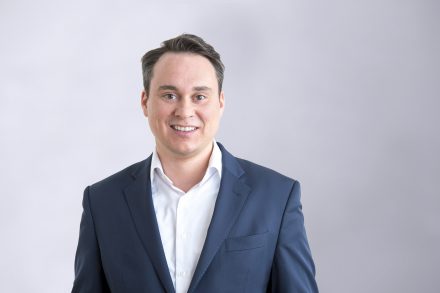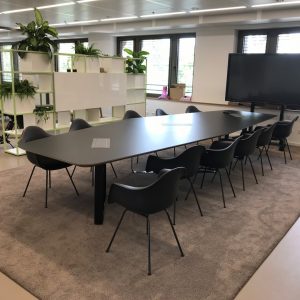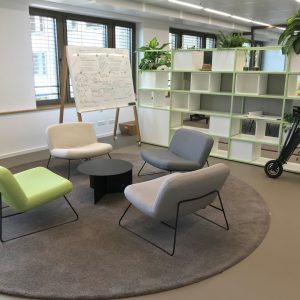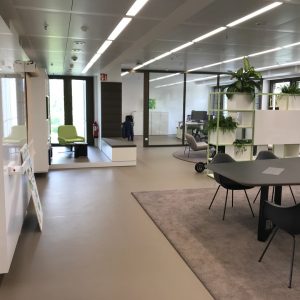BayWa r.e. Energy Ventures is a young, Munich-based venture capital company. The subsidiary of the BayWa Group invests in energy startups. We were able to talk with Ulrich Seitz, Managing Director at BayWa r.e. Energy Ventures and asked a few questions.
Please introduce yourself.
BayWa r.e. Energy Ventures was founded in April 2018 as a venture capital firm belonging to BayWa r.e., a company that is active on a global scale in the field of renewable energy. Our team focus is on providing financial and operative support for promising startups in the entire energy sector. That support combines entrepreneurial experience with speed while also offering the security and stability of a corporation thanks to the financial strength provided by backing from BayWa AG. We see ourselves as equal partners who work together with founders to implement our company motto: “r.e.think energy.”

What is BayWa r.e. Energy Ventures’ task within the BayWa Group?
Our primary task is to identify and tap into new business models and markets. By investing in young, innovative companies, we aim to recognize new trends in the energy sector early on and develop them further. We want to learn all we can about current market developments. We are open to all options when it comes to exits, with BayWa r.e. itself to also be considered as an exit option.
“We’re open to all promising young companies in the energy sector.”
What is your main investment focus?
In general, we’re interested in young companies from the entire energy sector and especially in startups with innovative ideas in terms of digital solutions, storage and e-mobility. Another important factor for us is the vision behind a business model: One of the startup’s declared objectives should be to take on a long-term leading role in an area of the energy sector and to make a substantial contribution to solving current and future problems.
Our aim is to invest in up to five startups annually if the basic conditions are right. We’re particularly interested in startups in which we can become initially involved as a lead or co-investor with a total of one to five million euros per year. Larger investments are also possible in later rounds.
Which stage is the best time for startups to contact you?
We are particularly interested in the early stage of development after proof of market, meaning the product has already received initial positive feedback from the market.
What type of startup would you never invest in?
In general, we are open to all promising young companies in the energy sector. Yet there are some situations in which we would abstain from making an investment. Something we view negatively, for example, is if we feel like the entrepreneurs are not actually completely behind their own product. We also value how the team works together on a personal level. If we notice the chemistry is not good or the founding team has their differences, that is a definite drawback for us.
“Nothing can replace personal contact”
How can founders get you to notice them?
It’s definitely helpful for a startup to be recommended by network partners such as BayStartUP or Ecosummit. Moreover, it doesn’t hurt to have representative documents with varied levels of detail with you when making initial contact. That way, founders can quickly and flexibly provide any information we might need in case we are interested.
But I also believe in the principle that nothing can replace personal contact. If we’re interested in a company, we usually pick up the phone to talk first, followed by a visit and getting to know one another in person.
A peek at the energy VC’s office space (photos: BayWa r.e. Energy Ventures):
Do startups need to be worried about you getting too involved?
No! It’s crucial for us that startups remain independent in their decisions and that they also remain agile and flexible. That gives them the freedom to adapt their business model if needed, makes them interesting to co-investors over the long-term, and keeps various exit options open for them. As an exit-oriented VC firm, we are basically only interested in minority holdings and not in influencing operative business. Wherever practicable and necessary, we are happy to support startups with our industry expertise, infrastructure and sales power – but only if it makes sense and is requested by the founders.
The trend of the year is…?
There is so much going on in the startup scene at the moment, which is why I don’t think there’s one trend of the year. The key areas of development that are currently influencing all industries certainly include blockchain, predictive maintenance and artificial intelligence. These trends can be found particularly in the energy sector in business models for asset management for wind and photovoltaic parks, in battery management systems, in charging infrastructures for e-vehicles and also in the field of smart grid and smart home.
What does the Munich startup scene do right? What is missing here?
In my view, startups in Munich have a much stronger focus on B2B than in Berlin. The infrastructure here and access to investors and founder networks is also extremely well developed. As a result, there is a good foundation for new ideas to emerge and for profitable cooperation particularly in that area. B2C activities, however, are significantly less pronounced and extremely fragmented in Munich. My wish would be for a central point of contact here or there in the future.
Whom should startups contact if they would like to meet with you?
Contacting us is simple and is possible through our website, by email or right over the phone. After briefly getting to know one another, we would be happy to make an appointment for our first in-depth meeting to see if we are a good match. In many cases, contact is also established through our network partners or results from meeting in person at trade shows or industry events.






